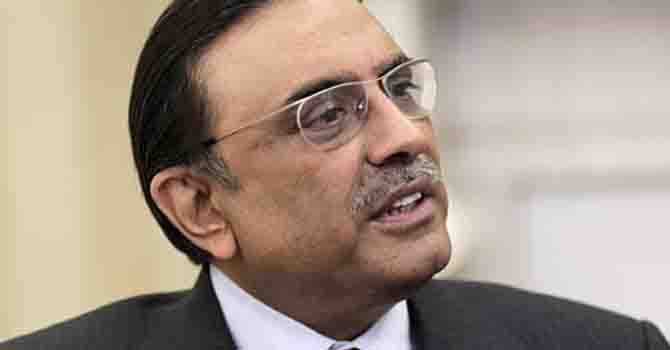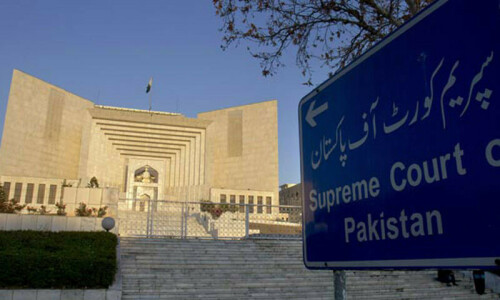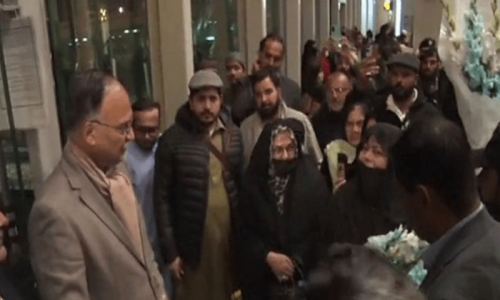ISLAMABAD: The United States was told categorically on Friday that progress towards re-engagement would not be possible without an apology over last year’s air strikes in which 24 Pakistani troops lost their lives.
“President Asif Ali Zardari has said that after Pakistan has followed the democratic course for re-engagement with the United States …, it was now the turn of the US… to help Pakistan in reaching closure on Salala,” said a statement issued by the presidency after Mr Zardari’s meeting with a US delegation led by Special Envoy for Afghanistan and Pakistan Marc Grossman.
President Zardari went to the extent of indicating willingness to restore Nato supply lines under new terms in a bid to get the apology as quid pro quo, but the Americans appeared to be uncompromising.
“We have already initiated an inter-agency consultation process and broad parameters have been developed for an agreement on Isaf/Nato supplies through Pakistan,” Mr Zardari said.
Instead of apologising, the Americans want Pakistan to settle for invitation to Chicago Summit in return for the reopening of ground supply routes.
Other officials engaged in dialogue with the US for rebooting ties also said that the US reluctance to apologise had stymied the normalisation process and the first round of talks in Islamabad ended without making any headway.
The Nov 26 attack on the Salala post threw Pakistan-US ties, which had already been weighed down by the challenging events of 2011, into a tailspin and Pakistan reacted by ordering revision of terms of engagement with Washington, suspending Nato supply routes and evicting the Americans from the Shamsi airbase.
On completion of a protracted review process, parliament sought apology and punishment for those responsible for the deadly strike in addition to other demands, including cessation of drone attacks and cutting down American footprint in Pakistan.
The US has already refused to negotiate on drone strikes, leaving Pakistan to push for alternatives that could at least satisfy its sovereignty concerns.
President Zardari made mention of this during his meeting and said: “Drone attacks are highly counter-productive in the war against militants … both sides should consider setting up a framework of mechanism to find mutually acceptable alternatives.”
The US has also reneged on its commitment to apologise for the Salala incident. The US, officials said, had communicated to Pakistan during the London meeting between Secretary of States Hillary Clinton and Foreign Minister Hina Rabbani Khar that both civilian and military leadership would apologise. Gen Martin Dempsey, Chairman of the Joint Chiefs of Staff, was to apologise on behalf of the military and Secretary Clinton on behalf of the political leadership.
But that couldn’t happen for a variety of reasons, chiefly President Barack Obama’s domestic political compulsions.
Mr Grossman initiated the negotiations here on Thursday. The dialogue was followed by meetings of sub-groups which, according to sources, remained limited to exchange of notes on resumption of Nato supply route, CSF reimbursements, counter-terrorism cooperation, revival of Strategic Dialogue and Kerry-Lugar assistance.
“I don’t see any forward movement because the US isn’t offering anything in return,” one official said.
Prime Minister Yousuf Raza Gilani in his meeting with Mr Grossman referred to his talks with President Obama on the sidelines of Seoul summit on nuclear security, where both of them had agreed on the criticality of streamlining relations between the two countries to achieve common goals.
Mr Gilani said Pakistan wanted a relationship with the US based on mutual respect and interest.












































Dear visitor, the comments section is undergoing an overhaul and will return soon.